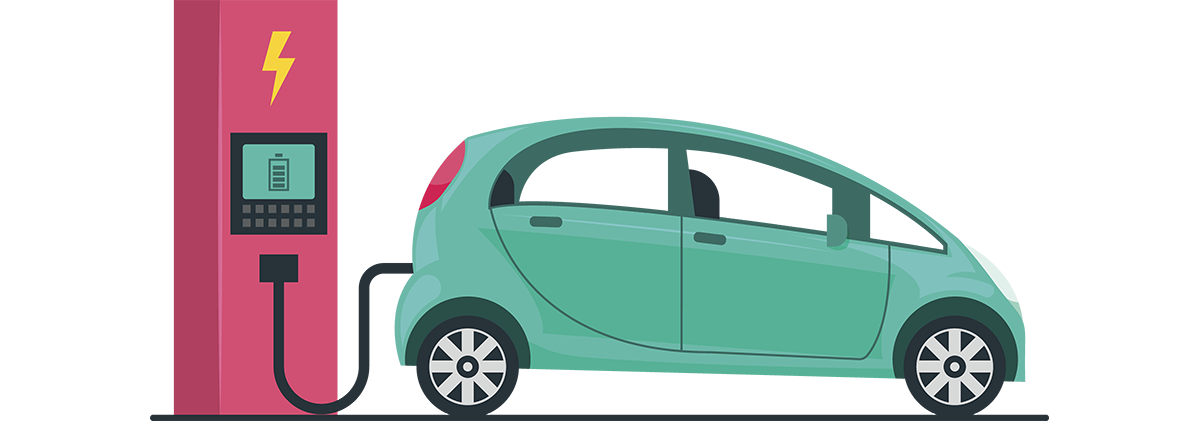
Start the New Year with Exciting Postage News
December 1, 2021
Solve Your Most Common Email Marketing Problems with PRINT MARKETING
December 15, 2021ELECTRIC CARS – Not as Cheap as Advertised

Let me say first that I am always in favor of advances in technology – as long as it is helpful – which in most cases, it is. But not always.
The whole concept of electric vehicles sounds cool. I drove a Tesla electric car once and was blown away at the power and quiet ride. It has the feel of "being off the grid." But my engineering mind has always guided me to wondering if we are really any better off from overall energy use and pollution standpoint. People often forget that electricity is not free. Charging your electric car costs money. Plus, both your house and the electric grid have to be equipped with the proper wiring and capacity to handle the charging.
There is the elephant in the room with electric vehicles. Our current residential infrastructure cannot bear the load. A home charging system for a Tesla requires 75 amp service by itself. The average house is equipped with 100 amp service. On a typical small street with approximately 25 homes, each having 100 amp service, the electrical infrastructure would be unable to carry more than three houses with a single Tesla each. Mass adoption of electric cars would require a mass overhaul of the electric system in almost every neighborhood in the USA – a massive undertaking. Plus, who is going to pay for it?
Then you have the issue of generating the power to charge all those cars. I am not sure how to do the math to figure out how much extra power would be needed, but it is not out of the question to assume we would need at least double the electrical energy we generate now, and maybe a lot more than that. How much extra pollution would it generate to double the output of power plants?
It has been proposed by the green crowd that not only can we cover the extra power needed for the electric cars, but also replace our reliable, cheap generating systems with expensive new windmills and solar cells. The problem is that the early experiments with this technology have resulted in rolling brown outs in areas that have tried it – without the additional load of electric cars. Plus, we will also have to renovate our entire electric delivery system! Again, a massive and expensive undertaking.
Ever since the advent of electric cars, the REAL cost per mile of those things has never been discussed. All you ever heard was the mpg in terms of gasoline, with nary a mention of the cost of electricity to run it. I have a friend who is a high-level executive in one of the nation's largest electric companies. He pointed out a few realities.
Now let's consider an actual use example by an engineer named in an article I recently read on this topic named "Eric." He had been invited to drive a Chevy Volt at the invitation of General Motors. He writes, "For four days in a row, the fully charged battery lasted only 25 miles before the Volt switched to the reserve gasoline engine." Eric calculated the car got 30 mpg, including the 25 miles it ran on the battery. So, the range, including the 9-gallon gas tank and the 16 kwh battery, is approximately 270 miles.
It will take you 4.5 hours to drive 270 miles at 60 mph. Then add 10 hours to charge the battery, and you have a total trip time of 14.5 hours. In a typical road trip, your average speed (including charging time) would be 20 mph.
According to General Motors, the Volt battery holds 16 kwh of electricity. It takes a full 10 hours to charge a drained battery. The cost for the electricity to charge the Volt is never mentioned, so I looked up the national average cost for electricity.
As of January 2021, the average cost of electricity in the US is $.134 per kwh. It ranges from $.09 to $.29 per kwh nationwide. $.134 per khw x 16 = $2.14 to charge the battery. $2.14 per charge divided by 25 miles = $0.09 per mile to operate the Volt using the battery using the average. At the high end, the cost is $0.18 per mile. Compare this to a similar-sized car with a gasoline engine that gets only 32 mpg. $3.19 per gallon divided by 32 Mpg = $0.10 per mile. Based on pure electric usage, electric cars vary from slightly better than gas to a lot worse. As the electric technology has improved, driving distances on a charge is getting better, and dollars per mile is also getting better. But electric is still far from a clear winner. The gasoline-powered car costs about $25,000, while the Volt costs $46,000 plus.
The last issue is the power generating capacity of the grid itself. If everyone suddenly switched to electric cars, we would not have enough capacity in the system to even charge all the cars. And trying to expand the capacity using renewable energy is definitely not a workable solution.
But when you consider all the issues mentioned above, moving to an all-electric vehicle system sounds good on paper but is not realistic or even possible in the near future. I am sure that it is inevitable that we move in this direction, but I hope that those in government who are pushing this will slow down a bit to consider all the ramifications before they blindly push for more electric cars.




